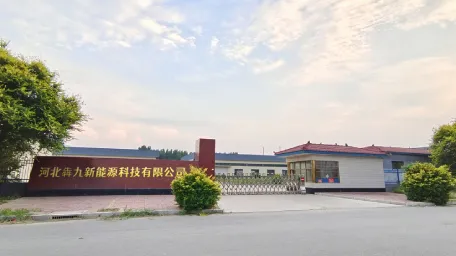High Performance Versatile Solar Panels for Maximum Efficiency and Flexibility
High Efficiency Flexible Solar Panels Revolutionizing Solar Energy
In recent years, the demand for renewable energy sources has surged, and solar energy has emerged as a frontrunner in this realm. Among various innovations, high efficiency flexible solar panels are gaining popularity for their unique advantages in both performance and versatility. These panels not only maximize solar energy conversion but also open new avenues for applications typically constrained by traditional rigid solar technologies.
Understanding High Efficiency Flexible Solar Panels
High efficiency flexible solar panels utilize advanced photovoltaic technology to convert sunlight into electricity at a significantly higher rate compared to standard panels. Made typically from materials such as organic photovoltaics or thin-film technologies like cadmium telluride or copper indium gallium selenide, these panels are lightweight and can be produced in various shapes and sizes. Their flexibility allows them to be applied to curved or irregular surfaces, making them ideal for a wide range of applications, from residential rooftops to handheld devices.
Advantages of Flexibility and Efficiency
One of the most prominent advantages of flexible solar panels is their adaptability. Unlike traditional rigid panels that require ample mounting space and a stable surface, flexible panels can be integrated seamlessly into building materials, vehicles, clothing, and even portable gadgets. This opens up a realm of possibilities for solar integration in urban environments, where space and aesthetic considerations are paramount.
Moreover, the efficiency of these panels poses a significant benefit. High efficiency flexible solar panels often achieve conversion rates exceeding 20%, making them competitive with rigid counterparts. This efficiency means that less surface area is required to produce the same amount of energy, which is particularly beneficial in space-constrained scenarios.
Applications and Innovations
Flexible solar panels have been increasingly adopted in various sectors. The automotive industry is a prime example, where manufacturers are exploring the integration of solar cells into vehicle surfaces to enhance fuel efficiency and reduce reliance on fossil fuels. Additionally, smart textiles that incorporate solar technology are emerging, allowing wearers to charge devices on the go, showcasing the merge of fashion and functionality.
high efficiency flexible solar panels

In aerospace, flexible solar panels are utilized to power satellites and drones, where weight savings are critical. These applications highlight the panels’ capability to function efficiently even in challenging environments, maintaining their power output in diverse conditions.
Environmental Impact and Sustainability
The production and deployment of high efficiency flexible solar panels align with global sustainability goals. By harnessing renewable energy, they contribute to reducing greenhouse gas emissions and combating climate change. The lightweight materials used may also entail a lower energy input during manufacturing compared to traditional solar panels, thus supporting the creation of a more sustainable energy ecosystem.
Challenges and Future Prospects
Despite their many advantages, flexible solar panels do face challenges. Durability and longevity have been areas of concern, as these panels traditionally have a shorter lifespan than their rigid counterparts. However, ongoing research and advancements in material science are continually addressing these issues, with improvements in protective coatings and structural integrity.
The market for high efficiency flexible solar panels is poised for growth. As technology advances and production costs decline, these panels will become increasingly accessible, propelling the shift towards renewable energy solutions. Companies invested in solar technology are exploring novel applications, enabling environments ranging from urban settings to remote areas to benefit from solar energy.
Conclusion
High efficiency flexible solar panels represent a significant step forward in solar technology, merging efficiency with adaptability. Their potential to integrate into everyday items and structures not only broadens the scope of solar energy utilization but also promotes a sustainable future. As research progresses and public interest in renewable energy continues to rise, flexible solar panels are set to play a critical role in the global transition to clean energy solutions. The world is gradually recognizing that the future of energy is not just about rigid solutions; it’s about flexibility, integration, and efficiency in harnessing the sun’s power.
-
Unlocking Energy Freedom with the Off Grid Solar InverterNewsJun.06,2025
-
Unlock More Solar Power with a High-Efficiency Bifacial Solar PanelNewsJun.06,2025
-
Power Your Future with High-Efficiency Monocrystalline Solar PanelsNewsJun.06,2025
-
Next-Gen Solar Power Starts with Micro Solar InvertersNewsJun.06,2025
-
Harnessing Peak Efficiency with the On Grid Solar InverterNewsJun.06,2025
-
Discover Unmatched Efficiency with the Latest String Solar InverterNewsJun.06,2025







